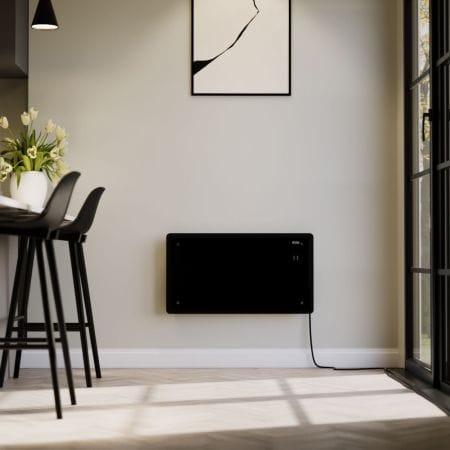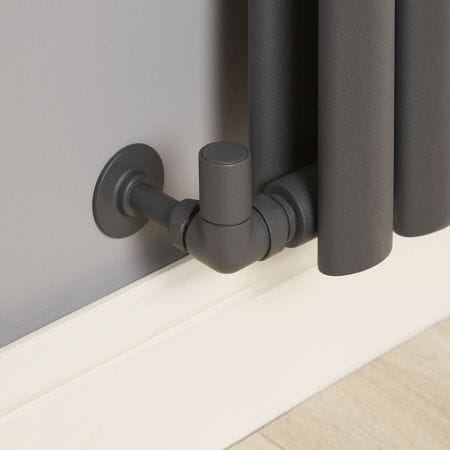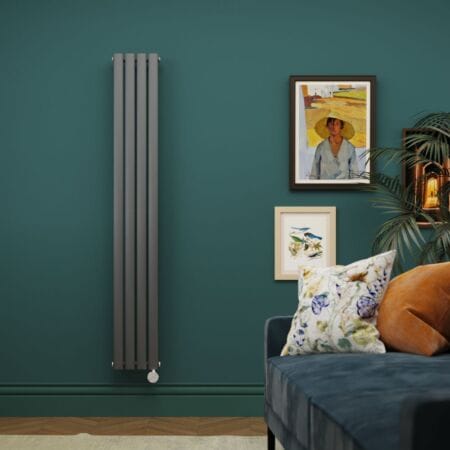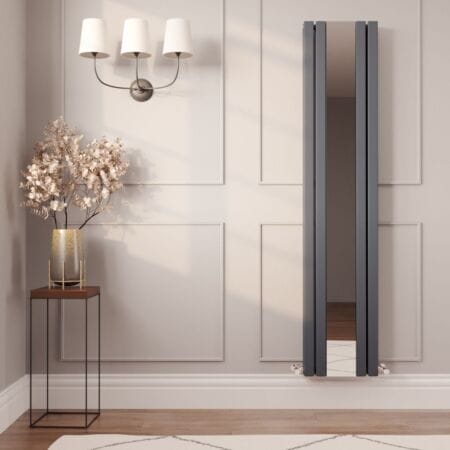Contents
ToggleWhat we'll cover...
This guide explains essential heat pump maintenance tasks, from routine cleaning and filter checks to annual servicing. You’ll learn how to keep your system efficient, prevent common problems, and extend the lifespan of your ground source or air source heat pump.
Keeping your heat pump in top condition
Keeping your heat pump in top condition doesn’t just mean warm underfoot conditions in winter and staying cool in summer. It’s also a cheat code towards lower bills, fewer breakdowns, and getting the most out of your heat pump investment.
In this guide, we’ll discuss everything you need to know to keep your system ticking over nicely. From DIY-friendly simple checks to professional servicing pointers, we’ll cover how often you need to complete maintenance tasks, where things can go wrong, and how to keep things running smoother than smooth.
If you’re in doubt about anything, you can always seek professional help. But if you’re up for rolling up your sleeves and giving your heat pump some TLC, everything you need to know is covered in our expert guide.

The importance of regular heat pump maintenance
Let’s begin with the basics: why bother maintaining a heat pump in the first place? After all, it just sits there quietly working away in the background doing its thing, right? Not entirely. Heat pumps, like any hardworking appliance, require routine attention to keep operating efficiently and supplying the necessary required power to your radiators and heated towel rails. Neglecting maintenance can lead to heat pumps expending extra energy, drops in performance, and ultimately, repair work that will make your wallet weep.
Regular heat pump maintenance results in:
- Lower energy bills
- Improved performance for heating and cooling
- A longer heat pump system lifespan
- Fewer repair requirements
Whether you’ve chosen to invest in an air source or ground source heat pump, the principles remain the same: treat it well, and it’ll return the favour.
Air source heat pump maintenance schedule
Monthly or bi-monthly tasks
The most common air source heat pump maintenance tasks should be undertaken on a bi-weekly or monthly basis…
Clean or replace filters – Filters trap dust, pollen and other unwanted airborne gunk. Over time, they clog up and reduce airflow, which in turn makes your system work harder. Give your filters a thorough clean every month or two, or replace them with new versions if they’re beyond saving.
Check airflow and clear debris – Leaves, twigs, and all sorts of garden waste can build up around outdoor units. If your heat pump looks like it’s trying to camouflage itself into the hedgerow, it’s time for a tidy-up. Clear a space of at least two feet in radius around the unit and make sure there’s nothing blocking the airflow.
Quarterly tasks
The following air source heat pump maintenance tasks should be undertaken on a quarterly basis…
Clean coils – Over time, dirt and grime can build up on the coils of a heat pump system, especially on the outdoor evaporator coil. Cleaning these coils will help to maintain an efficient level of heat exchange.
Check thermostat and settings – It’s good practice to adjust your settings in line with seasonal changes. Ensure your smart thermostat is correctly calibrated and adjust the temperature schedules to suit your comfort needs.
Inspect fan blades – Perform a visual inspection on your fan blades to check for wear or damage. If anything appears wobbly or cracked, switch the system off and seek the opinion of a professional.
Annual tasks
These air source heat pump maintenance measures must be carried out just once a year…
Book an annual service – Once a year, hire a professional to run a full service on your heat pump setup. They’ll check refrigerant levels, electrical connections, and the general health of your system. Think of it like an MOT for your home heating system. Checkatrade estimate a fee ranging between £150 and £300 for heat pump servicing.
Check and clean drainage – Condensate drains can clog over the period of a few years, which may lead leaks or damp patches surrounding the indoor unit. Give the pipe a flush with warm, soapy water, or vinegar if you need to tackle especially tough stains.

Ground source heat pump maintenance schedule
Ground source heat pumps generally don’t require too much maintenance work but still need regular TLC. These systems will tend to last longer than air source heat pumps, but that isn’t an invitation to set and forget.
Monthly or bi-monthly tasks
Monitor pressure levels – Pressure taking an unexpected drop? That could indicate a leak or imbalance in the loop system. A quick monthly check can prevent significant hassle in the future.
Clean air vents – Dust and debris can accumulate in your air distribution vents. Grab a vacuum attachment and give the air vents a once-over every couple of months.
Quarterly tasks
Check thermostat and settings – As is the case with air source heat pump systems, seasonally check your smart thermostat is set up correctly and that your temperature scheduling fits in with your lifestyle needs.
Annual tasks
Book an annual service – A professional service for ground source heat pumps includes performing a check on antifreeze levels, ensuring flow rates are on point, and reviewing the overall efficiency of your system.
Check ground loop fluid – Over time, the thermal conductivity of the loop fluid can deteriorate. An engineer can test and top it up or replace it as necessary.

Heat pump maintenance frequency checklist
Here’s a handy breakdown of how often to keep on top of your heat pump maintenance:
Task | Frequency |
Clean or replace filters | Monthly |
Check airflow and debris | Monthly |
Clean coils | Quarterly |
Check thermostat/settings | Quarterly |
Inspect fan blades | Quarterly |
Monitor pressure (GSHP) | Monthly |
Clean air vents | Monthly |
Annual service | Yearly |
Check drainage (ASHP) | Yearly |
Check loop fluid (GSHP) | Yearly |
Common heat pump problems and how to fix them
Even with regular maintenance, problems can pop up. Here are a few common heat pump problems and how to fix them:
Unusual noises
You might have experienced noisy radiators over the years, and with heat pump systems, many of the same sounds can signify issues. Clanking? Buzzing? Screaming like a banshee? (Okay, maybe not that last one.) Noises like these can be caused by loose fan blades, blocked airflow, or failing components. Switch off and carefully inspect the system, or call in professional assistance if you are unsure.
High energy usage
Has your electricity bill suddenly shot up like a firework on bonfire night? Consult the heat pump; a dirty filter, incorrect thermostat setting, or refrigerant leak could be to blame.
Excessive ice buildup
It’s commonplace and expected for some frost to appear on an air source heat pump in the colder winter months. But if it is starting to appear more frequently, it could be a defrost cycle issue or blocked airflow trouble. Clear the area and keep an eye on the situation. If the problem persists, seek professional help.

Expert heating maintenance advice from BestHeating
Some regular simple maintenance work can keep your heat pump humming happily for years. There’s plenty of measures you can implement yourself, but if you are unsure at any juncture, you can always seek professional assistance for heat pump maintenance.
There’s plenty of resources in the BestHeating Advice Centre offering hints and tips on all sorts of heating maintenance options and when to utilise them, plus handy hints on heat pump grants and HVAC system guidance.
Let us know your key hacks or how you’ve used ours in the comments below, or by getting in touch through Instagram, Facebook or X.
John is a Research Specialist for the Best Heating Advice Centre, where for over nine years he has dedicated himself to demystifying home heating for our customers. He specialises in creating clear, data-driven guides and how-to articles by collaborating directly with our team of certified heating experts and product engineers.
His work, built on a foundation of journalistic research, has helped millions of readers make confident and informed decisions about their home heating. When he’s not breaking down the heat output differentials from radiators to heated towel rails, John fancies himself as a fine football and music connoisseur.




